Matt Rees's Blog - Posts Tagged "ian"
Acid attacks, crucifixion, and a new Patricia Cornwell: Caro Ramsay's Writing Life interview
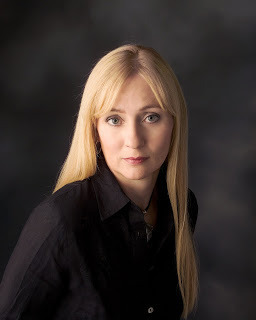
Caro Ramsay’s debut “Absolution” is one of the most disturbing thrillers you’ll ever read. It features a beautiful woman who’s the victim of an acid attack and a series of disembowelments in the “Crucifixion killings” of young women. Caro’s also from one of the roughest neighborhoods of Glasgow, where she sets her novels. Would it surprise you to learn, then, that’s she’s an extremely charming person? We met last year at an awards dinner in London (where she trained as an osteopath) and I’m delighted that she agreed to answer the questions I pose in The Writing Life. (For American readers, osteopathy is a British form of medicine involving manipulation of the muscles and bones. It hasn’t really taken off in the U.S. It’s a bit like what a U.S. chiropractor does. Although I’m sure I’ll get emails now from outraged osteopaths and critical chiropractors who disagree. In any case, it doesn’t involve crucifixion, although my mother who once had to visit an osteopath for a slipped disc said it felt like it.) Out earlier in May in the UK, Caro’s new book “Singing to the Dead” was, for many of her fans, a long time coming – not that she’s been lazy, it’s just that a year and a half is a long time to wait in the world of crime fiction! But the response from readers, who’ve already made it a bestseller in Scotland, shows that it was worth it. She’s often compared to fellow crime-writing Scot Ian Rankin – he’s Edinburgh to her Glasgow. With her own medical background, a better comparison might be the medical thrillers of Patricia Cornwell.
How long did it take you to get published?
The first thing I wrote was picked up by an agent and sold to Penguin so it was instant for me. It was never a plan of mine to become an author. I was lying in a hospital bed unable to move for a long time and wrote 250,000 words because I was so bored. Those words became two novels - Absolution and Singing To The Dead.
How long did it take you to get published?
The first typescript I sent away was accepted by an agent and subsequently sold to Penguin. My agent does do a fair bit of in-house editing and I think they saw in that first draft somebody who had a gift for writing but who had no idea how to put a novel together. But once I had learned that (very hard) lesson the book was immediately offered to Michael Joseph at Penguin and they immediately accepted. So compared to other authors I was very lucky. The lucky thing was having a very good agent!
Would you recommend any books on writing?
None that I have found really helpful. I think I found it of more benefit to read a lot in my own genre, finding out what worked for me and what didn’t. My philosophy is to write what I would want to read!
What’s a typical writing day?
Chaotic. I get up about six thirty, feed animals, do some writing, look at the next bit that needs done, go to work, think about what I am going to write next while driving etc come home at night and eat a sandwich for tea while writing the bit that has been forming and evolving in my mind during the day. I have two big writing days a week when I sit all day and type. On these days I can do 7,000 words a day easily. Plot problems tend to work themselves out when you are not sitting at the computer. I have no problems with discipline, I am obsessive about it and if don’t write every day I get withdrawal symptoms. An academic summed it up for me – creativity time and productivity time. They are not the same thing.
Plug your latest book, what’s it about? Why’s it so great?
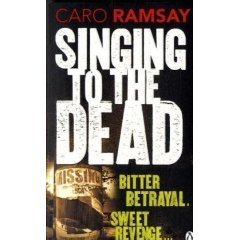
It’s about child abduction, food tampering, the nature of celebrity, sibling rivalry, murder, death … usual every day stuff of life’s rich tapestry. As it was written at the same time, it is technically, the second half of the first book, but it has a very different flavour. It’s very up close and personal. A serial killer out on the dark streets of Glasgow in mid winter is one thing but suspecting he might be sitting next to you on the bus every morning is much more chilling!! As I write it’s sitting at number 4 in the charts (crime Scotland!) so I‘m feeling very pleased.
How much of what you do is:
a) Formula dictated by the genre within which you write?
b) Formula you developed yourself and stuck with?
c) As close to complete originality as it’s possible to get each time?
Good question for somebody who has only written three books! I like my genre, I like my characters, so there is a very precise framework that I work within, yet within that framework I think it is possible to write books of different style and timbre. I’m not really an experienced writer at all, I’m from a medical background and I feel I need the support of my well known supporting cast to help me through. I have never felt the need to break away from my serial characters but time will tell.
I am a bit tentative about saying it because I don’t think I can look at it objectively myself but it has been reviewed as one of the best novels this year so far and a Canadian review said “crime writing does not get any better.” For some reason I already have a big following in Canada all those ex-pat Scots maybe.
What’s your favourite sentence in all literature, and why?
“I’d far rather be happy than right!” Slartiblartfast says it in Hitch Hikers Guide to the Galaxy - Douglas Adams. Great philosophy on life and it’s a fantastic closing line if losing an argument at a party. I’m having it on my gravestone.
What’s the best descriptive image in all literature?
Am I allowed the only one I remember most clearly? It’s the first paragraph of Black Beauty by Anna Sewell, a fantastic book full of philosophy and wisdom re the nature of our relationship to the world around us.
Who’s the greatest stylist currently writing?
Have to say since I started writing I have no time to read, so I’ll pass on this one re the word currently. But PD James full stop!
Who’s the greatest plotter currently writing?
Nobody really stands out, I’m afraid. I know Reginald Hill’s plots are not horrifically complicated but it’s hard to see past him for plot/ character balance. As you might guess, I don’t read much American crime so apologies for that!
How much research is involved in each of your books?
A full time, demanding job means I do write about what I know so lots of medical stuff per murder. I have lots of friends in low places (cops and lawyers) who love to help out over a coffee… and the rest is done on the internet. The third book is about malignant narcissism. My training in psychology helps me to plan the book, then I very carefully research the specifics I need. Only a fine peppering of the research I do gets in the book.
Where’d you get the idea for your main character?
My characters tend to arrive in my head fully formed and ready to go. (This can be a sign of mental illness!) I know there is a debate as to whether characters can take over the plot … the ‘whose fingers are on the keyboard?’ argument. But in my case, they do and layers of their persona come out as the demands on the character grow (often to my surprise) but I guess that’s the creative subconscious mind working in full flow.
Do you have a pain from childhood that compels you to write? If not, what does?
No, not really. I had a very nice childhood in what would be considered the deep badlands of Govan, one of the hardest areas of inner city Glasgow. I make a conscious decision not to portray my home city in that way, it’s been done to death – pardon the pun.
I think all writers have a tendency to look on life from a slightly sideways perspective and I’ve always been aware of that. My siblings and I could view the same situation and I would walk away with a totally different interpretation of events - mine always being slightly on the dark side.
What’s the best idea for marketing a book you can do yourself?
I’m still finding my way in this writing world but I run a very successful practice outside my writing life. The same rules apply in any walk of business - give value for money, show you care, do that little extra … and they will remember you as a ‘good thing.’ I get paid a lot of money for my books so when my publisher tells me to jump, my only question is ‘how high?’
What’s your experience with being translated?
My natural language is broad Glaswegian and my editor sometimes asks to translate it into English!! But foreign transcripts have been very kind, i.e. the word ‘skelf’ is a common word for a splinter (as you would get in your fingertip from a rough piece of wood). A few translators emailed me to gauge the politeness of this word. Once I told them my 105 year old granny would use it… they were happy. In some languages I think a splinter can have a rather rude connotation! My experience of translation has been very positive.
Do you live entirely off your writing?
I could live off my writing now but I’m blessed to do a day job I love so I don’t want to give it up. I get paid lots for my hobby, but I can see a time, maybe after book four when I will have to choose. Not a decision I am looking forward to.
How many books did you write before you were published?
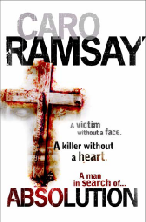
Got the first one published. No dusty typescripts under the bed or anything.
What’s the strangest thing that happened to you on a book tour?
Ermmm, a very drunk Irish journalist had a go at me - a teetotal Glaswegian in a bar at one in the morning … (he was never going to win) and after a few choice words on both sides, we found out our granddads knew each other! After that we were the best of pals – a very Celtic thing!
What’s your weirdest idea for a book you’ll never get to publish?
There’s a cartoon character who appears in book two, Squidgy McMidge who is a very politically incorrect cartoon character who goes about causing chaos with his friend Bonsai McMidge. But as I write this there has already been an approach made re the copyright of Squidgy The Mighty McMidge. He even has his own theme tune now. And a Tee –shirt!
“Kill someone soon!” Dan Fesperman’s advice on The Writing Life
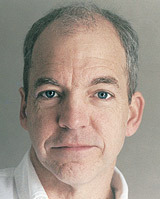
Journalists often dream of turning the more dramatic events to which they’ve been witness into fiction. Relatively few do so successfully, and certainly not with the panache of Dan Fesperman. He has stood out from the crowd of journalist-turned-thrillerists since his fabulous debut “Lie in the Dark.” It was based on his time reporting from Sarajevo during the Balkans War. It’s more informative than any history of that war, because it brings with it not merely dates and death tolls, but a much more important glimpse of what it’s like, emotionally, to live in a war zone. The graft that goes along with conflict tends to be ignored by historians, too, but for a crime writer it’s the most important element. “Lie in the Dark” won the Crime Writers Association John Creasey Dagger (not the last time the CWA awarded its first-novel prize to a former foreign correspondent reusing his experiences for fiction…. I won’t keep you guessing. I mean, me. Last year, for “The Bethlehem Murders” aka “The Collaborator of Bethlehem.”) Though it seems like a risky venture to ditch a journalistic career for something as financially iffy as writing fiction, Dan has made it work. He also notes that in these days of internet-fuelled media-industry carnage, he probably chose a more secure profession. I'm glad he did.
How long did it take you to get published?
Nearly forever. Or, in layman’s terms, almost two years after I finished my first manuscript. Just finding an agent took about a year and a half, mostly because a couple dozen told me to go take a hike, or, in the memorable words of one of the more callous rejections, “It is obvious from your letter and your submission that you know little about either querying or novel writing.” So maybe that’s why it seemed like forever, when, in the larger scheme of things, I suppose it didn’t really take that long. Or maybe it was that I waited until the age of forty-one to complete my first manuscript.
Would you recommend any books on writing?
Only Strunk and White’s Elements of Style, and within that slender volume only E.B. White’s brief but graceful essay on style. Anything beyond that and you’re only reading to avoid the looming confrontation with the keyboard.
What’s a typical writing day?
A typical ideal day, when things are going great and I’m deep into a manuscript, involves waking up with snatches of dialog already circulating like moths in the attic of my mind, followed by a quick cup of coffee consumed as I’m putting those thoughts to the page, followed by a solid three to four hours of writing, then maybe a bowl of popcorn for lunch, a few hours of re-writing, then a run and a shower, followed by several more hours of work until I look up at the clock and realize, “Oh, shit! If I don’t stop soon there won’t be any dinner on the table and it will be 7:30 and everyone in the family will be screaming for flesh, half-starved.” Followed by eight hours of sound sleep in which I dream about the characters in the book as they busily go about solving all of my pending plot problems. Which is partly my way of saying there is no typical day, only good ones and bad ones and ones in which, just when you’re thinking the day will be a total loss, you find yourself scribbling furiously in pursuit of some new thought that has just solved every problem you’ve encountered during the previous three weeks.
Plug your latest book. What’s it about? Why’s it so great?
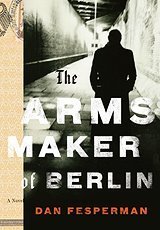 God, I’m terribly awkward about plugging my own books, but maybe for a moment I can channel the spirit of some wonderfully gabby PR person who has just shut the cover, and, hopefully, is totally enthralled by what she has just read. So, let’s see, it’s a literate, intelligent thrill ride down the deepest corridors of the 20th century’s darkest history – most of it occurring in Germany – spent in the company of a rather personable American male professor and a mysterious and fairly tormented young female historian from Berlin. Both of them are on the trails of the doings of an old spy and an old arms maker, whose deeds of purported heroism and venality may have actually been something else altogether, and may even now hold the key to further heroism and venality. Which is why several others folks want to keep our two historians from succeeding. In short, it’s still the same old story, the fight for love and glory, a case of do or die. And if I continue in this vein, I’ll violate copyright law (if I haven’t already), so I’ll stop.
God, I’m terribly awkward about plugging my own books, but maybe for a moment I can channel the spirit of some wonderfully gabby PR person who has just shut the cover, and, hopefully, is totally enthralled by what she has just read. So, let’s see, it’s a literate, intelligent thrill ride down the deepest corridors of the 20th century’s darkest history – most of it occurring in Germany – spent in the company of a rather personable American male professor and a mysterious and fairly tormented young female historian from Berlin. Both of them are on the trails of the doings of an old spy and an old arms maker, whose deeds of purported heroism and venality may have actually been something else altogether, and may even now hold the key to further heroism and venality. Which is why several others folks want to keep our two historians from succeeding. In short, it’s still the same old story, the fight for love and glory, a case of do or die. And if I continue in this vein, I’ll violate copyright law (if I haven’t already), so I’ll stop.How much of what you do is:
a) formula dictated by the genre within which you write?
b) formula you developed yourself and stuck with?
c) as close to complete originality as it’s possible to get each time?
I try at all costs not to write by any formula – either self-imposed or by genre – but from time to time I do find myself obeying a small voice in the back of my head that keeps saying things like, “Pacing, you idiot!”, or “If you don’t kill someone soon, then I’m going to jump out a window, and so will half your readers!” I haven’t yet discerned whether that voice is coming from one of my editors, who has somehow managed to install a sinister micro-command module in the room where I write, or whether it’s the same voice which, when I’m cooking, always yammers, “You know, this would taste a hell of a lot better if you’d just throw it in the deep-fryer.”
What’s your favorite sentence in all literature, and why?
“I was looking right into Anne’s face, and doing so, I knew, and knew that she knew, that this was the moment the great current of the summer had been steadily moving toward all the time.” That’s from Robert Penn Warren’s All the King’s Men, at the culmination of eight pages of sinuous sexual tension that has been building in a wonderfully lyrical account of a youthful summer romance. Basically, the book’s narrator is about to lose his virginity, and in this one sentence Warren captures all the sweetness and aching of youthful longing better than anything I’ve ever read. Even when I go back to it now I’m transported to one of those lonely summer nights when the whole world of experience seemed to lay just ahead, and every girl I cherished remained just beyond reach, yet there was also a palpable sense of potential, a realization that the era of fulfillment was nigh.
What’s the best descriptive image in all literature?
This is going to be much lengthier than what you probably had in mind with that question, but Thomas Flanagan wrote an outstanding historical novel. The Year of the French, about the 1798 “rising” in Ireland. Within it was perhaps the best summation by imagery of an entire nation that I’ve ever come across, and I’ll share it with you in slightly truncated form (am I again violating copyright law? Well, at least this time it’s for a selfless cause):
“We are a land of ruins. Norman keeps and towers, and the queer round towers of which no man knows their antiquity, shattered manor houses of the Tudor times, the roofless abbeys and monasteries savaged by the men of Cromwell, their broken arches gaunt arms against the tumbling clouds, strongholds of O’Neills and O’Donnells, Burkes and Fitzgeralds, bashed and battered away, moss and ivy creeping over their stumps as they lie dreaming beneath the great sky of Ireland… As though in this land all, everything, has been sentenced from the beginning to break apart, fall into pieces, powerless against our harsh divinities of rain and wind and weed and tall grasses. All in ruin, the ruin of a world, sacked and burned and smashed, by Danes and Normans and Irish and English.”
Who’s the greatest stylist currently writing?
I’ll say Jonathan Lethem, but I’ll say it with hesitation because he still has so many books yet to write, and to date has been a bit of a ventriloquist, channeling a lot of different voices (almost all of them wonderful to read, mind you). I also hesitate because most of my favorite stylists have either died – John Fowles comes to mind – or have wandered a bit from the path, such as LeCarre with his recent propensity to preach. I’ll also nominate a fellow who, with less timid editors, would perhaps be soaring in the grandest tradition of Southern baroque, and that would be Pat Conroy. But I’m guessing that due to his huge commercial popularity, his editors tend to cower and hold their blue pencils in abeyance, and as a result they often leave some of his more damaging excesses intact. Pare them away and you’ll discover a great deal of beauty, even for those who might find his work overly sentimental.
Who’s the greatest plotter currently writing?
Arturo Perez-Reverte comes to mind. So does J.K. Rowling (ducks). But for a single book it would be hard to top Ian Rankin’s performance in Black and Blue.
How much research is involved in each of your books?
As much as it takes. With The Arms Maker of Berlin, that meant a full month of looking through declassified OSS records in the National Archives, plus two weeks of traveling in Bern, Zurich, and Berlin. But I was cheating a bit, too, because I’d lived in Berlin for three years back in the mid-90s, and had done loads of news reporting on lots of the issues of guilt, shame, and complicity that come into play in the book. So I like to think I went into it fairly well armed with insight.
Where did you get the idea for your main character?
I needed a digger, a seek of larger truths, but I didn’t want him to be a journalist, and I also wanted him to be a fellow who from time to time let himself fall far to deeply into the wormholes of his work, and the occupation of historian was just about the only one that fit.
Do you have a pain from childhood that compels you to write? If not, what does?
No. No pain at all. In fact, I regret to say that my childhood was blissfully boring and uncomplicated, because I am well aware that all those writers who lived through sheer torment and Hell, and years of maladjusted angst in the aftermath, certainly seem to have a far easier time attracting huge advances and massive publicity. I personally blame my level-headed parents for this tawdry state of affairs, and firmly believe that the long-overlooked issue of the neglect of writers from well-adjusted childhoods should be explored immediately and at great length, beginning with, say, a guest appearance on Oprah, in which the cover of my latest book would be featured prominently amidst great praise.
What’s the best idea for marketing a book you can do yourself?
The one I just mentioned sounds about right.
What’s your experience with being translated?
Ten languages so far, but hit or miss from one book to the next. Rumanian is probably the biggest surprise to date, although I was also a bit shocked when someone from an Italian edition asked for permission to cut one fifth of the text. It was the one time in my life when I was glad I couldn’t speak Italian, because I said yes.
Do you live entirely off your writing? How many books did you write before could make a living at it?
Not really entirely, since my wife’s job provides our health insurance and a salary of its own. But, yes, I quit my day job as a newspaper reporter after the third book, The Warlord’s Son. At the time it seemed like a huge gamble, but given what has become of the newspaper industry it’s now apparent that remaining on the payroll of the Baltimore Sun would have been far riskier.
How many books did you write before you were published?
My debut novel was my first manuscript, thank goodness. One of the few benefits of being a late starter, I suppose.
What’s the strangest thing that happened to you on a book tour?
I had the misfortune of having a reading/signing slotted for the same night and time as the first presidential debate during the 2004 campaign, in a very politically savvy neck of the woods in northern California. Even the staff of the bookstore had the debate running on a TV in a back room. Heck, I wanted to watch it, too. About five people showed up, and I seem to recall that even one of them asked a political question.
What’s your weirdest idea for a book you’ll never get to publish?
A novel about the experiences of an Englishman swept up along with the Mongol hordes in the year 1226, an idea triggered by a throwaway line in a biography of Ghengis Khan which mentioned that, just before sacking Budapest, they sent an Englishman into the city to present their terms for surrender.



